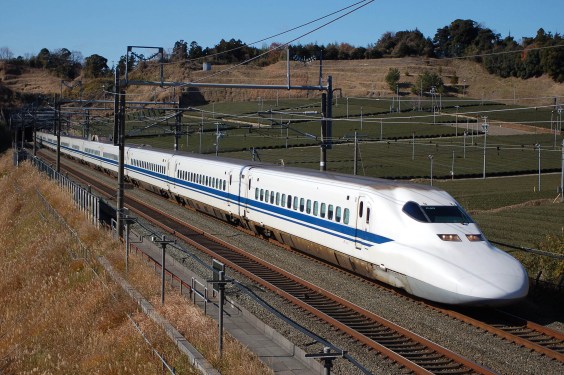Hoping to cash in on the urban cycling trend, European automakers have started branching out into the world of human-powered transportation, according to the London Evening Standard. BMW, Volkswagen, Peugeot, and Cooper have all introduced brand-specific bicycles.
Bikes are still a small portion of automakers' business and may, at least initially, be aimed more at branding than any sort of substitution for their core product. Still, Joel Batterman at Network blog Transport Michigan wonders what the carmakers' foray into bicycling says about our evolution as a culture. And could the Big Three be far behind?
There's considerable symbolic significance in this phenomenon. "De-motorization" is already a well-documented phenomenon among Japanese youth, who feel that "having a car is so 20th century." It's something else entirely to see it happening among automakers themselves.
U.S. automakers have occasionally branded some bikes. Instead of urban commuter bikes, however, they've mostly been mountain bikes designed in keeping with their cars' off-road image. The Hummer LX is one example. However, it's doubtful anyone ever conceived the LX as "part of a green city solution," as Peugeot terms its two-wheelers, since the Hummer brand tended to be more associated with running over the natural world than protecting it.
As Detroit planning consultant Toni Griffin has suggested, it may be time for Detroit to start thinking in terms of "transportation innovation," not just automobile innovation, especially as the world continues to change. Ford dabbled in mass transit after the energy crises of the '70s, and no clear lines divided the field's pioneers a century ago.
Batterman points out that the auto industry has historical ties to cycling and public transit. Henry Ford was a bike commuter who started out in the streetcar business. And Detroit tire manufacturing also has its origin in the cycling industry. An evolution toward manufacturing other modes of transport, could, in a way, bring the industry back to its roots.
Elsewhere on the Network today: Burning the Midnight Oil says that even if some projects are scrapped, expanded passenger rail is here to stay in the U.S. Greater Greater Washington ponders what it would take eliminate death and serious injury on our roadways. And The Transport Politic weighs in on the idea of extending a subway line to New Jersey instead of builing the ARC tunnel.






